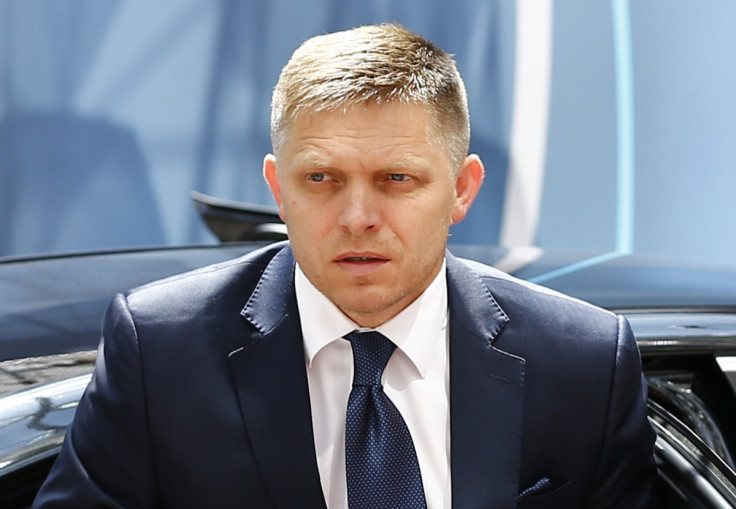Migrant crisis: Who is EU refugees quota rebel Slovakian PM Robert Fico

Following on the heels of Hungarian Prime Minster Viktor Orban, another European leader has emerged as a stanuch opponent of the EU policy on immigration. Slovakia's prime minister, Robert Fico, has been the most vocal critic of a redistribution system with mandatory quotas passed earlier this week.
The scheme to relocate 120,000 refugees has been approved with the backing of an overwhelming majority of EU governments, but Slovakia, Hungary, Romania, and the Czech Republic voted against.
Under the plan Slovakia is required to take in only 802 people, equal to 0.014% of its population, but Fico has vowed to challenge to decision before EU courts.
"We won't implement this decision because we think it can't work," he said, describing the quota system as "irrational". "[Slovakia] is not ready to respect it. We always rejected it as nonsense," he added.
Refusing to accept refugees will cost Slovakia a financial penalty of 0.002% of its GDP – about €2m (£1.4m, $2.2m)
Fico, 51, is campaigning to be re-elected, as Slovaks will head to the polls in March. He won the previous vote by a landslide, but has since witnessed a drop in approval and a failed bid to become president.
In 2012, he seized his current office as his Smer party won more than 44% of the vote at the general election, becoming the first since Slovakian independence in 1993 to gain an absolute majority in parliament.
The married father of one had been prime minister before, leading the country for four years from 2006 to 2010 in an uncomfortable coalition with far-right Slovak Nationalists (SNS) and the populist HZDS led by former PM Vladimir Meciar, who was once described by The Economist as a "nasty, authoritarian populist".
Fico, a lawyer trained during the communist regime and a former Communist Party member, has in fact a solid left-wing background. Born to a working class family in the small western town of Topolcany he joined the Party of the Democratic Left (SDL) after the fall of the Berlin Wall and later founded Smer, which is also-centre left.
His first coalition government successfully brought Slovakia into the Eurozone but also won international criticism for its hostility towards the Hungarian minority and for curbing media freedom.
In 2010 Smer won the popular vote but failed to form a coalitio, leading to a centre-right government alliance led by Iveta Radicova, which lasted just two years.
After being re-elected in 2012 amid a large corruption scandal that engulfed Slovak politics, in 2014 Fico ran for president but lost to independent candidate Andrej Kiska, a former businessman who won almost 60% of the vote running on an anti-Fico platform that played on fears that the prime minister was building up too much power.
In May, Smer was polling at 33%, down 11 points on its 2012 victory, according to a Focus agency poll, Reuters reported.
Fico has a mixed relationship with the EU. A defender and supporter of the Eurozone, before the migrant crisis he has criticised the union's stance towards Russia over Ukraine.
© Copyright IBTimes 2025. All rights reserved.






















